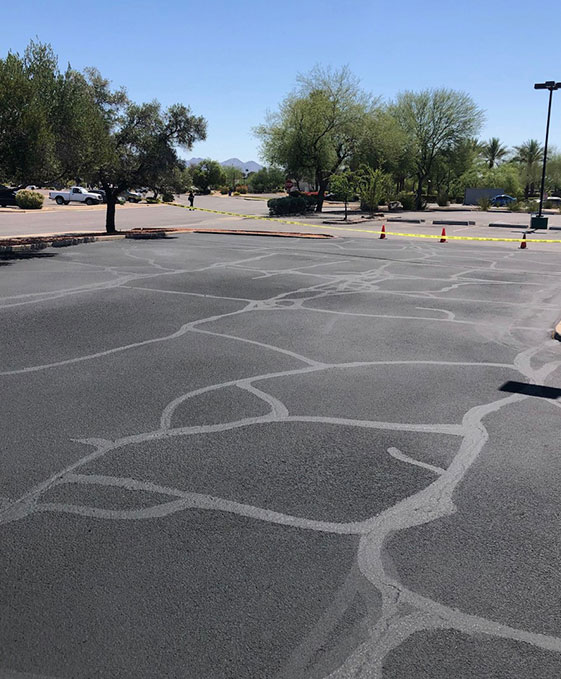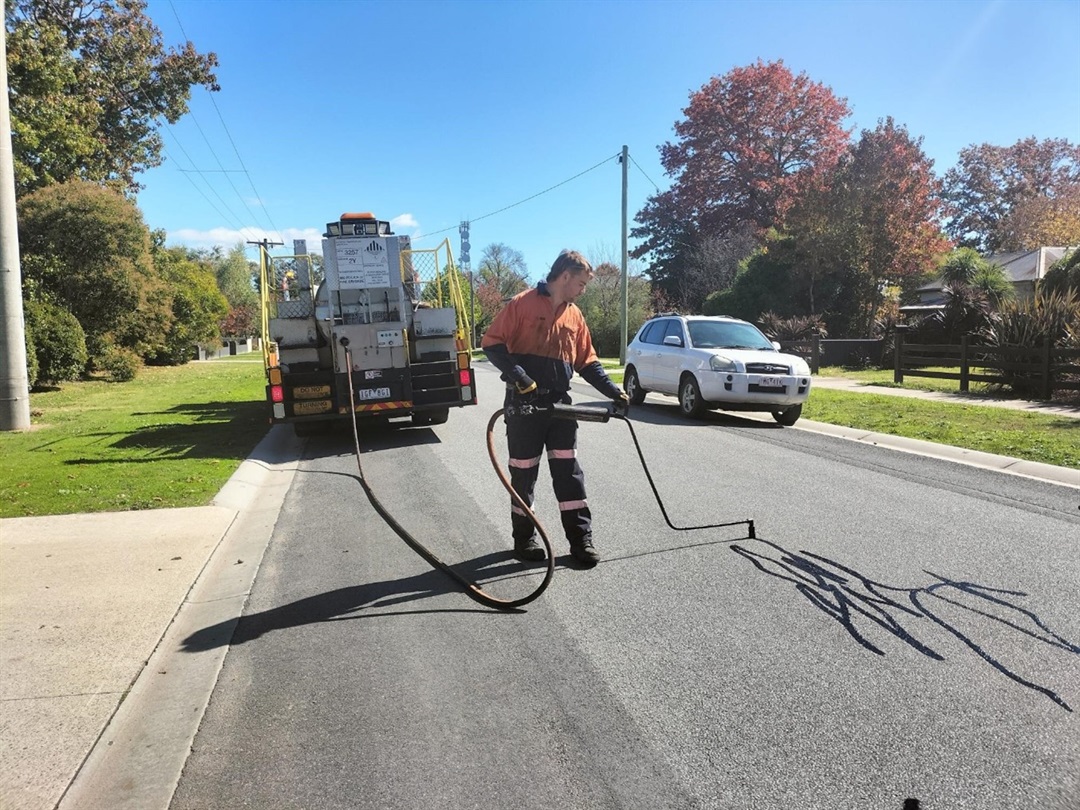Hey there, asphalt warriors! Let’s dive right into the nitty-gritty of pavement sealing cost. If you're a homeowner, business owner, or just someone who cares about maintaining that driveway or parking lot, this is the ultimate guide for you. Asphalt is like your car—it needs regular maintenance to keep it looking sharp and functioning well. And guess what? Sealing your pavement is one of the best ways to extend its lifespan. So, let’s crack into it and figure out how much it costs and why it’s worth every penny.
Pavement sealing cost can vary depending on a bunch of factors, including the size of the area, the type of sealer you choose, and even the condition of your asphalt. We'll break it all down so you can make an informed decision without feeling overwhelmed. Think of this guide as your trusty sidekick when it comes to protecting your investment.
Before we jump into the deep end, let’s talk about why sealing your pavement matters. It’s not just about aesthetics (though, yeah, it does look pretty sweet). Sealing protects your asphalt from the elements, prevents cracks, and slows down the aging process. So, if you’ve ever wondered how much it costs to seal a driveway or parking lot, you’re in the right place.
What is Pavement Sealing and Why Does It Matter?
Alright, let’s get into the basics. Pavement sealing is like giving your asphalt a spa day. It involves applying a protective coating that shields your pavement from UV rays, water damage, oil spills, and other nasties that can wreak havoc on your asphalt over time. Without sealing, your pavement is basically exposed to the elements, which can lead to cracks, potholes, and a whole lot of headaches.
Why does it matter? Well, think of it this way: would you leave your car outside without a coat of wax? Probably not, right? The same goes for your asphalt. Sealing not only enhances the appearance of your driveway or parking lot but also adds years to its lifespan. Plus, it’s way cheaper than replacing the entire pavement, which can be a massive expense.
Understanding the Benefits of Pavement Sealing
Here’s a quick rundown of why sealing your pavement is a no-brainer:
- Protects against water damage: Sealing prevents water from seeping into the asphalt, which can cause cracks and potholes during freeze-thaw cycles.
- Resists oil and chemical spills: If you’ve ever had a car leak oil on your driveway, you know how bad it can get. Sealing helps prevent these spills from penetrating the surface.
- Enhances curb appeal: A freshly sealed pavement looks like new, boosting the aesthetic value of your property.
- Extends pavement lifespan: Regular sealing can double the lifespan of your asphalt, saving you money in the long run.
So, if you’re still on the fence about sealing, these benefits should give you a pretty good reason to take the plunge.
Factors That Affect Pavement Sealing Cost
Now, let’s talk about the elephant in the room: cost. The price of sealing your pavement can vary depending on several factors. Here’s what you need to know:
1. Size of the Area
The larger the area, the more material and labor will be required. A small driveway might cost a few hundred bucks, while a commercial parking lot could run into the thousands. It’s all about square footage, folks.
2. Type of Sealer
Not all sealers are created equal. There are two main types: coal tar and asphalt-based sealers. Coal tar sealers are generally more durable and offer better protection against chemicals, but they can be more expensive. Asphalt-based sealers are usually cheaper but may not last as long.
3. Condition of the Asphalt
If your pavement is already in rough shape, you might need additional repairs before sealing. Cracks, potholes, and other issues can drive up the cost. It’s always best to address these problems first to ensure the sealer can do its job effectively.
4. Labor Costs
Hiring a professional contractor will obviously cost more than doing it yourself, but it’s worth it if you want a job done right. Labor costs can vary depending on your location and the contractor’s expertise.
Breaking Down the Average Pavement Sealing Cost
So, how much should you expect to pay? On average, the cost of sealing a driveway ranges from $0.15 to $0.30 per square foot. For a typical residential driveway of about 500 square feet, that works out to around $75 to $150. Commercial projects, on the other hand, can cost anywhere from $0.20 to $0.40 per square foot, depending on the size and complexity of the job.
Keep in mind that these are just averages. Your actual cost may vary based on the factors we discussed earlier.
DIY vs. Hiring a Professional
If you’re handy and want to save a buck or two, you might consider doing the sealing yourself. However, there are pros and cons to both approaches:
- DIY: Pros—saves money on labor costs. Cons—requires time, effort, and a bit of skill. Plus, mistakes can be costly.
- Hiring a Pro: Pros—guaranteed quality work, expertise, and peace of mind. Cons—higher upfront cost.
It all comes down to how much time and effort you’re willing to invest versus how much you’re willing to spend.
Choosing the Right Sealer for Your Pavement
Picking the right sealer is crucial for getting the best results. Here’s a quick guide to help you decide:
Coal Tar Sealer
Pros: Offers superior protection against UV rays, oil spills, and chemicals. Lasts longer than asphalt-based sealers. Cons: More expensive and can be harder to apply evenly.
Asphalt-Based Sealer
Pros: More affordable and easier to apply. Environmentally friendly. Cons: Not as durable as coal tar sealers and may require more frequent applications.
Ultimately, the choice depends on your budget, the condition of your pavement, and how much protection you need.
Preparation is Key: How to Prep Your Pavement Before Sealing
Before you apply any sealer, it’s essential to prepare the surface properly. Here’s what you need to do:
- Clean the pavement thoroughly using a pressure washer or a broom and detergent.
- Repair any cracks or potholes using a suitable filler or patching compound.
- Allow the pavement to dry completely before applying the sealer. This could take a day or two, depending on the weather.
Skipping these steps can compromise the effectiveness of the sealer, so don’t cut corners here.
Best Time to Seal Your Pavement
The ideal time to seal your pavement is during the spring or summer months when the weather is warm and dry. Avoid sealing during the winter or rainy seasons, as the sealer won’t adhere properly to a wet or cold surface.
How Often Should You Seal Your Pavement?
This is a common question, and the answer depends on a few factors. Generally, you should seal your pavement every 2 to 3 years. However, if you live in an area with harsh weather conditions or heavy traffic, you might need to do it more frequently.
The best way to determine when to seal is by checking the condition of your pavement. If it looks faded or has visible wear and tear, it’s probably time for a fresh coat.
Common Mistakes to Avoid When Sealing Pavement
Even the best-laid plans can go awry if you make some common mistakes. Here’s what to watch out for:
- Applying the sealer too thickly, which can cause cracking and peeling.
- Not allowing the pavement to dry completely before sealing.
- Using the wrong type of sealer for your specific needs.
By avoiding these pitfalls, you can ensure a successful sealing job that provides long-lasting protection.
Tips for a Successful Sealing Job
Here are a few tips to help you get the most out of your sealing project:
- Follow the manufacturer’s instructions carefully when applying the sealer.
- Use a high-quality sealer applicator to ensure even coverage.
- Plan your project around the weather forecast to avoid unexpected rain.
These small details can make a big difference in the final result.
Conclusion: Is Pavement Sealing Worth the Cost?
In a nutshell, yes, pavement sealing is absolutely worth the cost. It’s a smart investment that pays off in the form of extended pavement lifespan, enhanced appearance, and protection against the elements. Whether you choose to do it yourself or hire a professional, sealing your pavement is one of the best ways to maintain its integrity and value.
So, if you’ve been putting off that sealing project, now’s the time to take action. Check out the size of your pavement, decide on the right sealer, and get ready to give your asphalt the protection it deserves. And hey, if you found this guide helpful, don’t forget to share it with your friends or drop a comment below. Let’s keep those driveways and parking lots looking sharp!
Table of Contents
- What is Pavement Sealing and Why Does It Matter?
- Understanding the Benefits of Pavement Sealing
- Factors That Affect Pavement Sealing Cost
- Breaking Down the Average Pavement Sealing Cost
- Choosing the Right Sealer for Your Pavement
- Preparation is Key: How to Prep Your Pavement Before Sealing
- How Often Should You Seal Your Pavement?
- Common Mistakes to Avoid When Sealing Pavement
- Tips for a Successful Sealing Job
- Conclusion: Is Pavement Sealing Worth the Cost?


